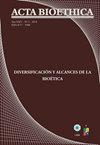被遗忘权与新冠肺炎:隐私与公共利益
IF 0.3
4区 哲学
Q4 ETHICS
引用次数: 7
摘要
最近的研究强调,由于新型新冠肺炎疾病导致的全球大流行,数字监测在收集个人健康信息方面的重要性。本文分析了个人隐私权与公共卫生集体利益之间的法律和伦理含义。我们从法律、义务论和功利主义三个方面展开了讨论。持久的理论和人权,特别是隐私权,在我们的论点中至关重要。健康引发的困境和解决这些困境的努力,特别是通过信息技术、生物伦理和法律,存在于这些观点的界面上。特别是,我们分析了自治、隐私权和公共卫生背景下所谓的“被遗忘权”之间的交叉点。换言之,我们研究了从控制者那里获得删除健康数据的权利,这是《通用数据保护条例》(GDPR)第17条规定的控制个人数据的根本手段。鉴于缺乏在广泛的公共卫生目的下收集和重复使用此类数据的细节,默示同意并不能解决相称性问题。我们强调法律保障的不足,建议根据道德解释适用“被遗忘权”。本文章由计算机程序翻译,如有差异,请以英文原文为准。
The Right to Be Forgotten and COVID-19: Privacy versus Public Interest
Recent studies highlight the importance of digital surveillance to gather individual health information due to the global pandemic caused by the new COVID-19 disease. This paper analyses its legal and ethical implications at the interface between the individual right to privacy and the collective interests of public health. We framed the discussion in law, deontology and utilitarianism. The lasted theories and human rights, especially privacy, are crucial in our argument. Health-derived dilemmas and efforts to solve them, especially by information technologies, bioethics and law, exist at these perspectives' interface. In particular, we analysed the intersection between autonomy, the right to privacy, and the so-called 'right to be forgotten' in the public health context. In other words, we studied the right to obtain from the controller the erasure of health data - a radical means of control over personal data established in Article 17 of the General Data Protection Regulation (GDPR). Given the lack of specifics regarding collection and re-use of such data under the broad scope of public health purposes, implied consent does not address the issue of proportionality. We highlight legal safeguards' insufficiency, suggesting applying the `right to be forgotten' according to an ethical interpretation.
求助全文
通过发布文献求助,成功后即可免费获取论文全文。
去求助
来源期刊

Acta Bioethica
Bioethical Issues-
CiteScore
0.40
自引率
0.00%
发文量
22
审稿时长
12 weeks
期刊介绍:
Acta Bioethica is a biannual publication by the Interdisciplinary Center for Studies in Bioethics of the University of Chile (ISSN 0717-5906, press edition, y 1726-569-X, electronic edition), which publishes in three languages: Spanish, English and Portuguese.
Indexed in Science Citation Index (SCI), Scopus, Lilacs, SciELO y Latindex, and in database from several Institutions; it constitutes a pluralistic source of perspectives and an important tribune which accepts the contributions of authors compromised with the interdisciplinary study of ethical determinants and consequences of techno scientific research.
 求助内容:
求助内容: 应助结果提醒方式:
应助结果提醒方式:


